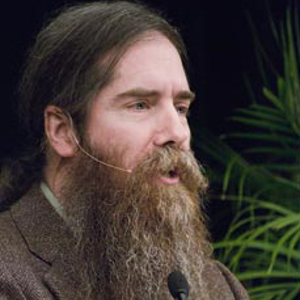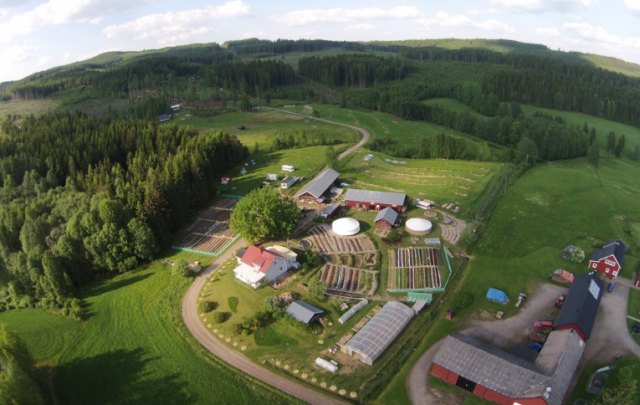Second part of a three-part review of David Korton’s Great Turning.
As the first part of this review suggested, David Korten’s widely praised book The Great Turning: From Empire to Earth Community proposes what amounts to a political solution for the predicament of industrial society. Korten argues that replacing current “developmentally challenged” politicians with new leadership drawn from the upper ranks of today’s progressive social change movements will foster a shift from a society based on the old ideology of Empire to one based on his preferred ideology of Earth Community. This shift, he claims, is the only effective response we can make to the crisis of industrial civilization he surveys so eloquently in the third chapter of the book. Yet it’s only fair to ask just how Korten anticipates that a society guided by his “emerging values consensus” will deal with, say, the immense practical challenges of coping with peak oil
You can read The Great Turning from cover to cover without finding an answer to that question. Look up “peak oil” in the index, and you’ll find that the only places in The Great Turning that mention it at all belong to the section of the book dedicated to showing just how awful Empire is. Like global warming, terrorism, the proliferation of weapons of mass destruction, and the likely implosion of an unstable economy founded on the smoke and mirrors of hallucinated wealth, peak oil appears only as one of the “sorrows of Empire” for which Earth Community is Korten’s solution. The sections of his book devoted to describing Earth Community never stoop to mention these troubles at all, much less propose solutions to them.
The nearest approach Korten makes to a discussion of such practicalities is a claim that once Empire is replaced by Earth Community, people will no longer want possessions they don’t need, and this will free up enough resources that everyone will be able to have their needs met. As a response to our current predicament, of course, this isn’t even remotely adequate. One of the most inescapable dimensions of the crisis of industrial society is the hard fact that six and a half billion people now live on a planet that can support, at most, two billion sustainably. While today’s wildly skewed distribution of wealth and access to resources certainly won’t help, no amount of redistribution can change the harsh realities that a species in overshoot faces as its resource base falls out from under it.
At the same time, Korten’s suggestion that everything will work out if we just learn to share is more than he has to offer for most of the other dimensions of our contemporary crisis. Quite a bit of his vision of Earth Community, in fact, has an uncomfortable resemblance to sound bites from a political stump speech. His response to the bitter poverty that burdens more than half of our species, for instance, amounts to proclaiming that every human being has the right to a worthwhile means of livelihood, backed up by unemployment, retirement, and health care plans, irrespective of their ability to pay. It’s a fine slogan, but without an awareness of the massive challenges that need to be faced to provide these things to six and a half billion people in a deindustrializing economy – an awareness Korten nowhere displays – a slogan is all it is.
Those of my readers who know their way around the visionary politics of the last half century will likely find these habits of thought extremely familiar. Every decade or so, we’ve had some new book announce the imminent arrival of utopia via a grand transformation of consciousness that will solve the world’s problems, irrespective of the practical details. Charles Reich’s The Greening of America and Marilyn Ferguson’s The Aquarian Conspiracy are two of the most famous of these works, and of course there have been plenty of others. They owe much of their market to the Baby Boom generation’s fondness for seeing its own arrival on the scene as the most important event in history – a habit of thought that crosses party lines, as shown by Francis Fukuyama’s 1989 masterpiece of unintentional comedy, “An End to History?” – and of course The Great Turning draws heavily on this same vein of thought. It’s probably not an accident that the criteria Korten uses to define the natural leaders of Earth Community include an age barrier that rules out anyone significantly younger than the Baby Boomers.
Still, unlike the books just cited and nearly all their equivalents, Korten doesn’t argue that the enlightened can bring utopia about simply by being enlightened, and here his book breaks free of the pack to embrace an older and much more dynamic tradition, one that shares most of his assumptions and nearly all of his rhetorical flourishes. This tradition has been responsible for a great deal of radical social transformation over the last three hundred fifty years, though it must be admitted that very little of that succeeded in accomplishing the good its proponents intended. I’m talking, of course, about the revolutionary tradition of the modern Western world.
Historian James Billington, whose Fire in the Minds of Men: Origins of the Revolutionary Faith remains one of the classic historical studies of the tradition, suggested wryly that if Marx was right to call religion the opiate of the masses, then revolutionary ideology is the amphetamine of the intellectuals. The moniker fits, and for more than the obvious reasons. The revolutionary tradition emerged at the same place and time as the modern intelligentsia, in 17th century England, and expanded around the world in lockstep with the spread of secular culture and modern education over the three centuries that followed. While the ideological banners brandished at the barricades have varied all over the conceptual map, the core narrative of the revolutionary tradition has remained fixed in place since the Diggers and Levellers first started proclaiming it in the aftermath of the English Civil War.
In its basic form, that narrative claims that all of humanity stands at a decisive turning point of history, facing the choice between the horrors of an uttery corrupt past and the shining possibilities of a future on the verge of being born. The existing order of society, the primary source of human misery, is beyond redemption and teeters on the edge of collapse, and a new social and political system that will bring out the best that humanity is capable of achieving stands ready to replace it. The existence of an ideal society in the distant past shows that a better world is possible, and that society’s destruction by the first forerunners of the present rulers of the world will soon be avenged. The old order is paving the way for its own demise by bringing about social changes that foster the emergence of its own replacement, while it makes its downfall necessary by pushing the world to the edge of ruin. All that is needed is the spread of the new system’s ideology, followed by one great effort on the part of people of good will, and the Great Turning will take place, ushering in a happy future for all of humanity.
You’ll find this same narrative laid out in detail in The Great Turning, of course, but you’ll also find it the writings of every revolutionary of the last three centuries or so. Gerrard Winstanley, the chief theoretician of the English Diggers, told the same story; so did the philosophes whose ideas laid the foundation for the French Revolution and the Jacobins who put those ideas into practice; so did Karl Marx and such 20th century Jacobins as Lenin and Mao, who played the same parts in a more recent remake of the same drama. For that matter, the same narrative crosses party lines just as effectively as the rhetoric of a transformation of consciousness mentioned earlier in this post; you can find exactly the same myth, for example, woven all through the repellent ideology of Adolf Hitler’s Mein Kampf.
It may be worth noting that Korten’s disavowal of violence as a way to accomplish his Great Turning does not set him outside the revolutionary tradition. Some of the most influential figures in the tradition have also rejected violence and insisted, as Korten does, that peaceful political action is the right way to bring about the transformation of society. What defines a narrative as part of the revolutionary tradition are the claims that the old order of society is the mainspring of human suffering, that it cannot be fixed but can only be overthrown, and that the new order of society will by definition be free from the troubles of the old. Underlying these claims is the fundamental thesis of the tradition, the claim that human behavior is defined by social forms, and that replacing evil forms with good ones will thus cause wicked behavior to yield to virtue.
After more than three centuries of experience, though, we have some idea how these narratives work out in practice. The short version is “not very well.” As a way of reducing human misery, revolutions – peaceful or otherwise – just aren’t very effective. Time and again, once the new revolutionary leadership settles into the seats of power, all the problems faced by the old system still remain to bedevil the new one, and the moral renewal revolutionaries expect as the natural result of their triumph somehow never quite happens. The results are as varied as the richly human complexities of politics and culture can make them, but the one thing that has never happened yet as a result of political revolution – be it peaceful, violent, or any of the subtle shades in between – is the arrival of a utopian society like Korten’s Earth Community.
Doubtless Korten and his supporters will argue that it’s different this time. Never before in human history, they might claim, has the choice between utopia and oblivion been more stark, the need for a Great Turning more urgent, or the possibilities open to a worldwide progressive movement more real. Maybe so. Yet this same claim has been made by every other prophet of revolution. Furthermore, treating the contemporary crisis of industrial society as something that can be solved by replacing one set of politicians with another, or one ideology with another, completely misses the hard material realities that make that crisis an inescapable part of our future. To deal with our predicament as a political problem is to fail to deal with it at all. As I hope to show in the final section of this review, politics can play a constructive role in helping today’s societies cope with the coming of deindustrial society, but the way there leads in a direction almost precisely the opposite of the one Korten proposes, and requires a hard look at the ways that today’s mythic narratives influence Korten’s view of politics – and ours.






